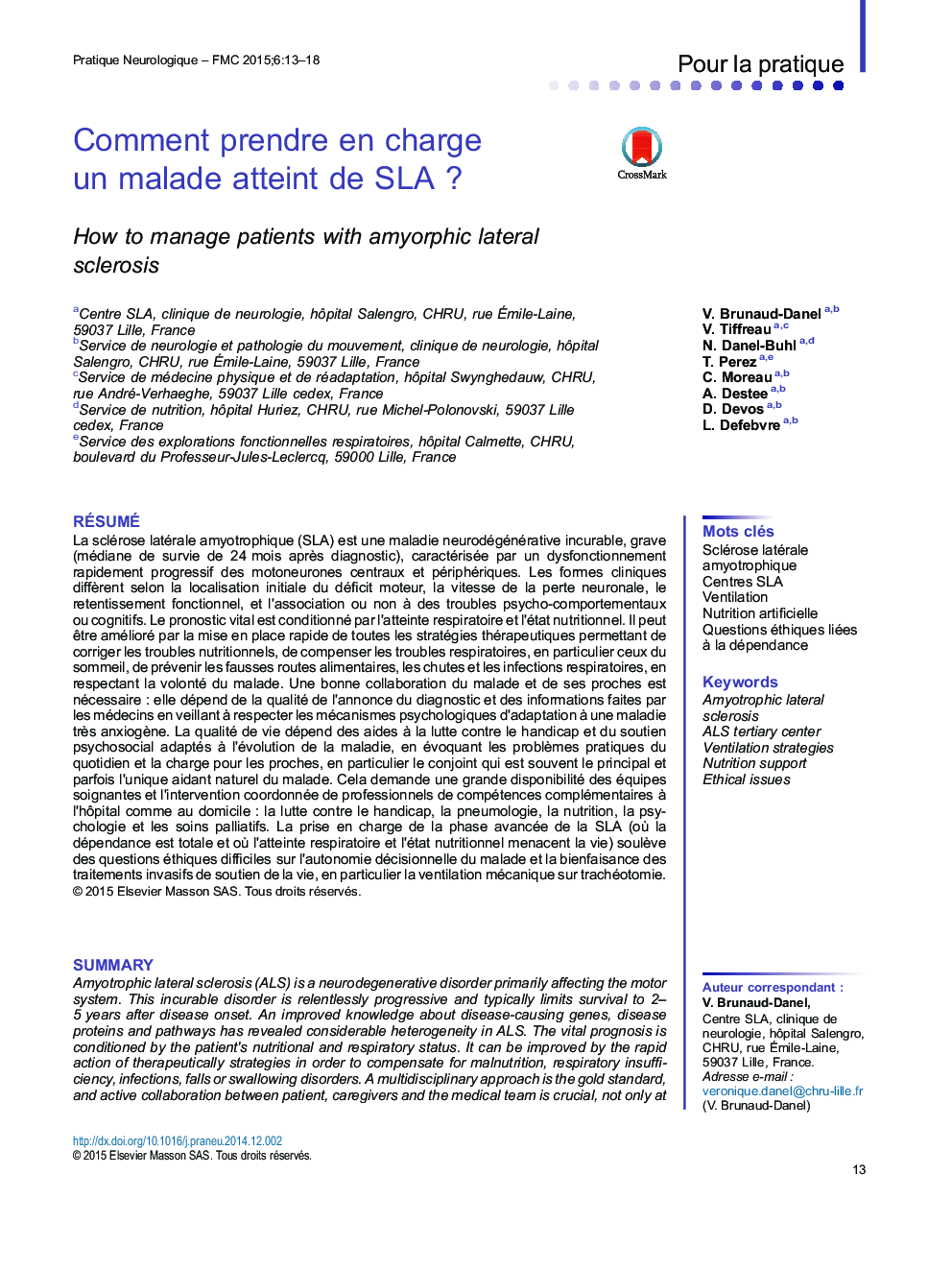| Article ID | Journal | Published Year | Pages | File Type |
|---|---|---|---|---|
| 3087145 | Pratique Neurologique - FMC | 2015 | 6 Pages |
Abstract
Amyotrophic lateral sclerosis (ALS) is a neurodegenerative disorder primarily affecting the motor system. This incurable disorder is relentlessly progressive and typically limits survival to 2-5Â years after disease onset. An improved knowledge about disease-causing genes, disease proteins and pathways has revealed considerable heterogeneity in ALS. The vital prognosis is conditioned by the patient's nutritional and respiratory status. It can be improved by the rapid action of therapeutically strategies in order to compensate for malnutrition, respiratory insufficiency, infections, falls or swallowing disorders. A multidisciplinary approach is the gold standard, and active collaboration between patient, caregivers and the medical team is crucial, not only at diagnosis but also throughout the disease course, in this very stressful disease. Psychological and technical support to palliate for disabilities is of utmost importance to preserve the patient's quality of life. The medical team must also be fully aware of the caregiver's burden in order to provide support when needed. Advanced-phase ALS is characterized by total physical dependence with sub-lethal respiratory and nutritional disorders. Palliative care is essential at this time. Complex situations, including advanced-phase ALS, present many challenges related to the patient's autonomy in making decisions concerning invasive ventilation.
Keywords
Related Topics
Life Sciences
Neuroscience
Neurology
Authors
V. Brunaud-Danel, V. Tiffreau, N. Danel-Buhl, T. Perez, C. Moreau, A. Destee, D. Devos, L. Defebvre,
